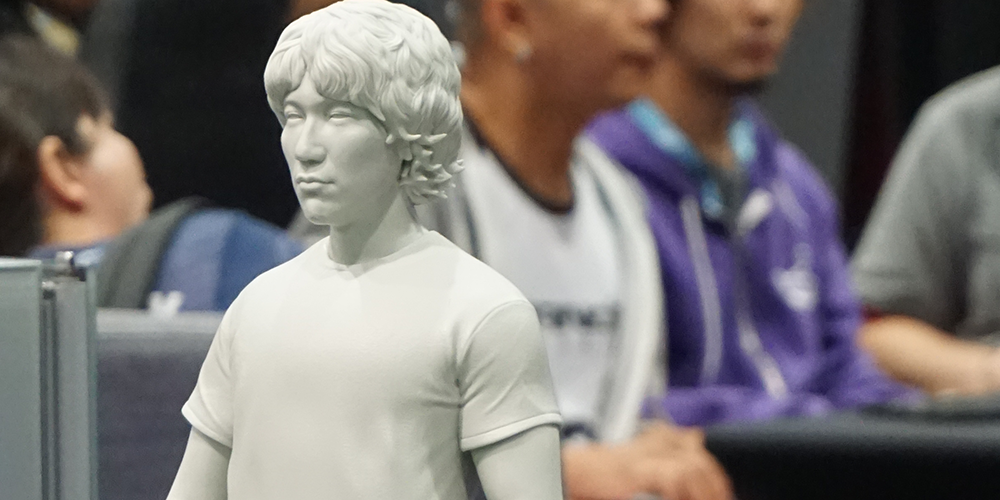I’ve been trying to get a hold of Daigo Umehara’s The Willpower to Keep Winning (◄ affiliate link) for a couple of years now; no unofficial fan translations exist, but it was recently released in English for the first time to coincide with this year’s Evolution Championship Series.
Due to the added Red Bull athlete promo photos and mention of them in the afterward for the English edition, I’d imagine this might have been partly at their behest to maximize promotion of their new investment.
While I was unable to attend Evo, the Kindle version of the book was recently released, so I picked it up. Technically, there’s one major issue with the book: quotations are formatted”like this”with no spaces before and after the quotation marks, and also em-dashes. This leads to a jarring and annoying experience, but it could just be my pickyness as an editor.
Before you read this review, understand that I’m a bit of a self-help junkie; this isn’t so much a blind belief that one book will fix my life, but more a craving for perspective. Perspective is what allows you to take little nuggets of wisdom from these books, instead of buying into the larger system that they’re usually trying to pitch you.
Thankfully, Daigo is not trying to get us to buy into something further down the line; he’s mostly just more try to explain his story and how he works. I’m undecided as to how cynical I am as to how much of the book is actually written by Daigo, as most pro gamers are not known for their ability to be articulate on the page. Ghostwriting is a huge deal in biographies, especially for celebrities.
While nothing has ever come out to suggest that Daigo used one, it’s always going to be in the back of my mind: thankfully the tone of the book is consistent throughout.
I read through this book in one sitting in about two hours: it’s a short one at 123 pages, divided into six sections that will breeze by. It follows a pretty logical flow in that Daigo explains his childhood, his rise in fighting games, a couple-year retirement in 2004, and then his re-emergence for the release of Street Fighter IV in 2009.
Along the way, we learn about a boy who had trouble finding a passion in life beyond video games, and how he eventually came to have the confidence to pursue it full-time. Daigo makes a point to emphasize that this confidence and persistence are core pillars of his philosophy: tenacity and the ability to believe in the thing you’re doing are qualities that allow you to explore it to its fullest.
Eventually, the latter half of the book decelerates and more focuses on directly addressing things like effective practice, learning from losses, establishing a routine and not burning out. This is a welcome change from most self-help books, who will usually keep such advice behind a veil of anecdotes that never quite to commit to what they’re saying.
However, this leads to a weird situation that I’ve seen before: in order to properly process what Daigo is saying, we have to be aware of the context of where he’s saying it from.
Daigo is a person who had the luxury of supportive parents and an accessibility to gaming in his childhood, opportunity in the early 2000’s to establish himself as a name (though lacking the financial opportunities) and the ability to transition into a short-lived Mahjong parlor worker and game enthusiast for three years. He encourages players to learn the fundamentals of a game by observing for “one to three years” and then progress to a point where you can start experimenting on their own with the confidence to develop their own style.
From the outside, it’s kind of hard not to just say “Oh yeah, I’ll just take the next five years off and maybe I’ll come out the other side with something.”
Maybe “luxury” isn’t the right word — pro gaming, in its infancy, was the opposite, and there are still countless players living in a relative poverty of opportunity and income right now. Daigo went through his share of hardship, and that’s something that’s surprisingly honest in the book; he doesn’t mince words about the lapses in confidence and mentality he had, and he is fully willing to learn from his mistakes.
However, there’s kind of this weird Catch-22 that comes from trying to pass on the knowledge he’s learned from his journey: it is very difficult to fully process those lessons and learn from his example because being the one to blaze that trail allows you a personal context and strength to make it seem worth it.
From the outside it can look like an intimidating peak to climb, and while Umehara stresses that it’s better to take “one step at a time” up the stairs of that mountain, it glosses over that everyone’s mountain looks different. There will be situations where his philosophy won’t work, because his is one that allows his mindset to thrive.
This is the important thing to remember when reading these kind of books: sometimes in order to achieve the same results, you’d have to have started years before the book was written. It doesn’t prevent you from taking good things from its pages, but achieving similar results cannot be your desired takeaway from this.
There are good pieces of general wisdom here that might stick out a bit better when processed through the lens of one of gaming’s biggest stars:
- Find joy in personal improvement rather than chasing money/wins (develop your own style and enjoy the pursuit of knowledge)
- Find joy in adversity (facing hard opponents and challenges)
- Tenacity and hard work are paramount in establishing discipline and motivation
- Takes chances and make mistakes to learn what doesn’t work for you, and don’t care about what other people think as you use that experience to make further decisions
After finishing the book you can kind of look back and think “Well, that’s all it is, right?”
It isn’t a bad thing, but it might best be received by people who are looking for a demystification of Daigo Umehara as a person, rather than approaching him as a guru on the mountaintop. There is no trick. There is no magic. Essentially, it’s hard work and dedication.
A lot of people will already know that, but some people may not have the fortune of being able to carry it out in its fullest. There will be people who read this book who will be past the point where opportunity is its sweetest, and some who read this book will need to realize that their inability to not drop everything and establish a six-hours-a-day routine for video games is not a personal failure.
As a fan of Daigo, I liked this book because I got to see a little more of an emotive and vulnerable side of a player who rarely breaks a stoic face when playing. Part of Umehara’s mystique is that wall — that “what’s really going on up there?” question that also surrounds players like Lee “Faker” Sang-hyeok and Syed Sumail “Suma1L” Hassan.
Whether through jealousy, envy, or curiosity, we want to know that they have vulnerability, moments of doubt or weakness. It helps us believe that we don’t have to be a specific type of person to achieve greatness, and even if we don’t reach their lofty heights, the potential for improving ourselves is there if you’re willing to persevere.
Philosophically, this book is less The Willpower to Keep Winning and more The Willpower to Keep Trying, and sometimes that’s what we need to do the most.
Image Credit: Nelo Hotsuma via Flickr (CC 2.0) | Adjusted for cropping


Leave a Reply